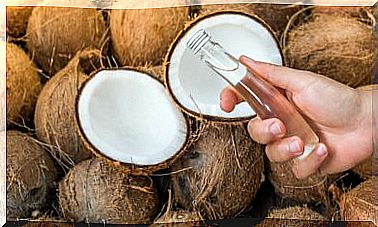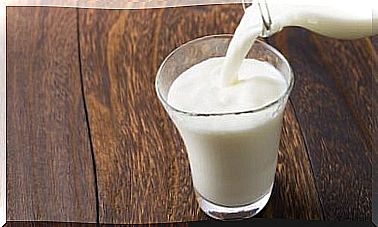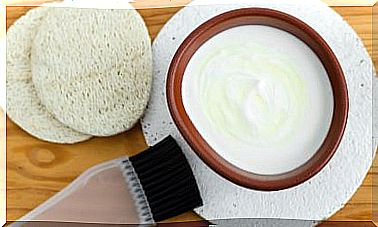The 6 Best Natural Anxiolytics To Calm Anxiety
The use of medicinal herbs and roots as a treatment for certain physical and psychological ailments is centuries old. Now, at present, natural anxiolytics are also an appropriate option for conditions such as occasional and moderate anxiety (provided, of course, we have the advice of doctors).
All of us at some point have resorted to these resources in order not to make use of allopathic medications. Thus, something as simple as taking a valerian or a chamomile infusion are very suitable alternatives when, for example, we have had a bad day and need to relax.
However, we cannot ignore one aspect. Psychotropic drugs are necessary in many cases, especially if we have to deal with a certain disorder. Also, when we drag chronic states that completely reduce our quality of life. On the other hand, in situations of stress and occasional anxiety, agitation or occasional nerves, natural anxiolytics can be a good answer.
Knowing how to choose which is the most appropriate and the recommended amount, we will undoubtedly benefit from those gifts that nature has put within our reach.
Psychopharmaceuticals and natural anxiolytics

The pharmaceutical industry tries to design increasingly effective psychotropic drugs with fewer side effects. It must be said that from the 1950s to the present much progress has been made. Before we had such dangerous options as barbiturates. Currently SSRIs (Selective Serotonin Reuptake Inhibitors) are undoubtedly a remarkable advance in the treatment of depression and anxiety.
Thus, among the best-known prescribed medications are:
- Clonazepam, used to treat generalized anxiety and social phobia.
- Lorazepam, used for panic disorders.
- Alprazolam, used for panic disorders and generalized anxiety.
However, these drugs are not without side effects. What’s more, lengthening its administration more than is adequate can generate dependency.
Not only dependence, but also tolerance (more and more doses will be needed to cause the same effect) and withdrawal (negative effects will occur when you stop taking the drug).
When to use a natural anxiolytic?
We must be clear that self-medication is never recommended or adequate, according to this study by the University of Santiago de Compostela (Spain). As we have indicated at the beginning, it will always be a professional who determines what type of treatment we need. If after an evaluation and a diagnosis it is established that the best thing is a psychotropic drug to be able to fall asleep or improve our state to also facilitate psychological therapy, we will do so.
Regarding natural anxiolytics, it should be noted that they are positive in the following cases:
- Moderate and occasional anxiety.
- Specific treatment for states of nervousness: face an exam, a job interview, etc.
- Natural remedy to treat moderate insomnia.
On the other hand, if we ask ourselves now if natural anxiolytics are effective, it should be noted that, indeed, they are. Studies such as the one carried out by Adelphi University, New York, USA indicate the following : there are natural herbs and nutrients that can stimulate the synthesis of neurotransmitters and, in a more natural way, improve and even adjust brain chemistry without cause side effects.
Let’s see now which plants are the most suitable.
Natural anxiolytics to calm anxiety
Among the medicinal plants used as substitutes and alternatives to anxiolytic medications to relieve anxiety problems we find:
1. Melissa
Commonly known as lemon balm, it is an anxiolytic plant capable of considerably reducing anxiety and stress problems and calming the nerves effectively, quickly and naturally. As explained in a study by the University of Avignon, in France, lemon balm is very effective in treating states of moderate anxiety as well as insomnia.
2. The linden
Also known as linden, it is a very popular plant and one of the best natural options to calm the nerves and the discomfort generated by excess anxiety, according to this study carried out by the Universidad Autónoma Metropolitana Iztapalapa, in Mexico.
3. Lavender
Lavender is a plant belonging to the Lamiaceae family and its many applications are recognized worldwide. Among the uses of this aromatic, the following stand out, according to this research carried out by the State University of Maringá (Brazil):
- Anti-inflammatory activities
- Antioxidant activities
- Antimicrobial activities
In addition, lavender has the ability to calm the nerves, reduce stress and anxiety. This is stated in this study carried out by the Western University of Health Sciences in California (United States).
4. The passionflower
Passionflower, also known as passiflora incarnata , is a medicinal plant native to the forests of the United States and is used as a natural sedative capable of relieving:
- The nervous tension.
- Hyperactivity.
- Sleep problems.
Thus, in the study cited at the beginning of the Adelphi University of New York, it has been seen that valerian increases the synthesis of GABA as well as the synaptic reuptake of this element, thereby promoting relaxation and well-being.
5. Chamomile
According to this study carried out by the Case Western Reserve University of Ohio (United States), chamomile is a plant that offers a large number of functions and benefits to the human body, such as:
- Soothe stomach ache
- Eliminate flatulence
- Disinfect wounds
- Reduce inflammation
In addition, this wonderful plant with anxiolytic properties also has the ability to reduce nerves and anxiety, offering relaxation to the body.
6. St. John’s wort
As Dr. Elham Alramadhan of New York’s Adelhy University explains, St. John’s wort has traditionally been used as an antidepressant. Its effectiveness is very positive also in the treatment of anxiety and stress because of the production of serotonin.
It is very suitable in turn for the treatment of premenstrual syndrome (PMS). However, it is recommended that before consuming it, we speak with our doctor.
How to prepare natural anxiolytics?
The best way to prepare a natural anxiolytic that helps calm and alleviate problems is by making an infusion with the selected plant.
In this way, all the benefits it offers can be effectively absorbed.
Ingredients
- 1 glass of water (200 ml)
- 1 tablespoon of the selected plant (15 g)
- 1 tablespoon of honey (25 g)
Preparation
- Add the water to a pot and bring to a boil.
- When it boils, remove from the heat and add the chosen plant.
- Cover the pot and let it rest for 15 minutes.
- Next, separate the leaves from the infusion with a strainer.
- Add the honey and let it rest for 5 minutes.
Consumption mode
To alleviate all the problems related to moderate anxiety, we suggest you drink between 2 and 3 glasses (600 ml) a day of one of the suggested infusions.
Remember that they are specific treatments and that we must have professional advice if the condition persists or worsens.
Therefore, these remedies are not intended to replace, in any way, psychotropic drugs, in the event that their use is mandatory.









